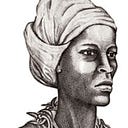Member-only story
How Michael Jackson Groomed the World
Michael Jackson’s sudden death in the summer of 2009 affected me. I was surprised by how much, given that I was never one of his super fans. I’d grown up on his music, though, and if you were a child when any of his seminal solo albums were released, he’s grafted onto our memories in a way that’s difficult to explain. When that white coroner’s van pulled away with Jackson’s body inside, it felt like a connection I hadn’t even known was there had been severed. I didn’t realize it, but I was a part of his “hive.” In hindsight, of course I was. He’d dominated the pop culture landscape throughout my entire childhood too much for me not to be. It’s difficult to explain just how famous Jackson was at his peak to anyone who didn’t live through it. There’s no parallel today that makes sense. Every comparison collapses. No one’s music videos are premiering during prime time and being consumed by every demo. I don’t think it’s possible for anyone to be that famous anymore. The world is more connected, but it’s also more fragmented. In the simpler communications landscape of the 80s and 90s, Jackson towered above his peers. He was almost a demigod, a grandiose role he embraced.
In the aftermath of Jackson’s death, his legacy was examined. The outpouring of grief and remembrance all over the world spoke to the power of it. I was living in New York City at the time, and my sister and I went…
